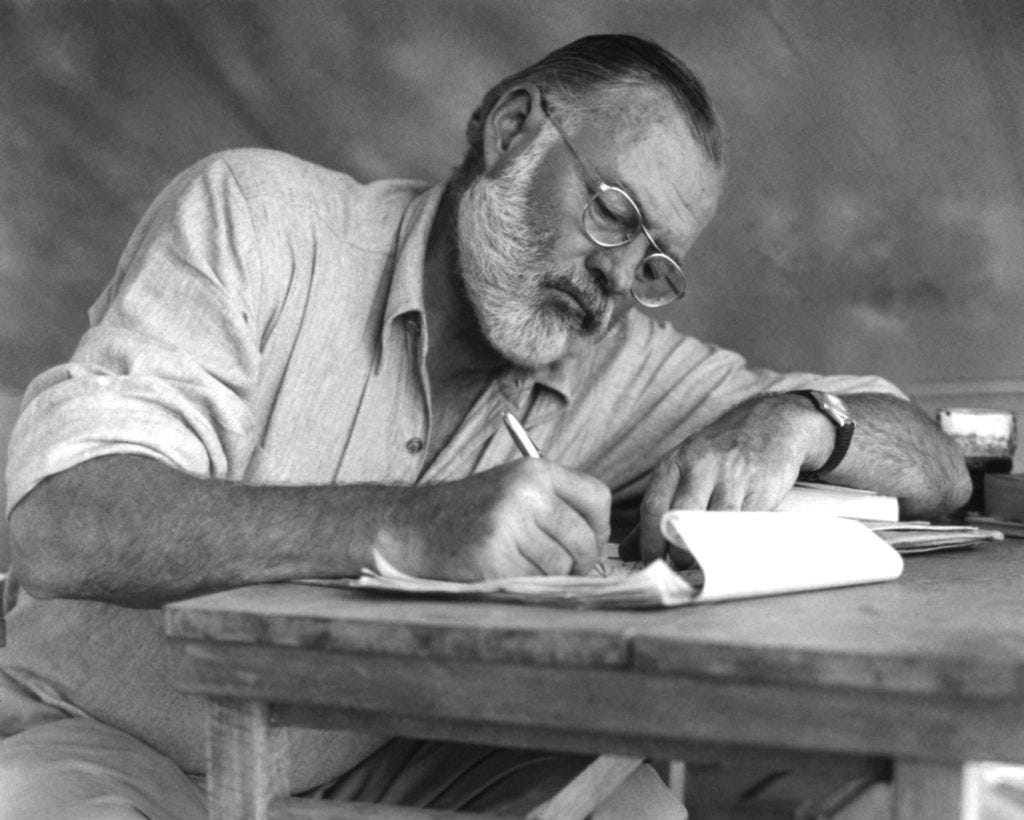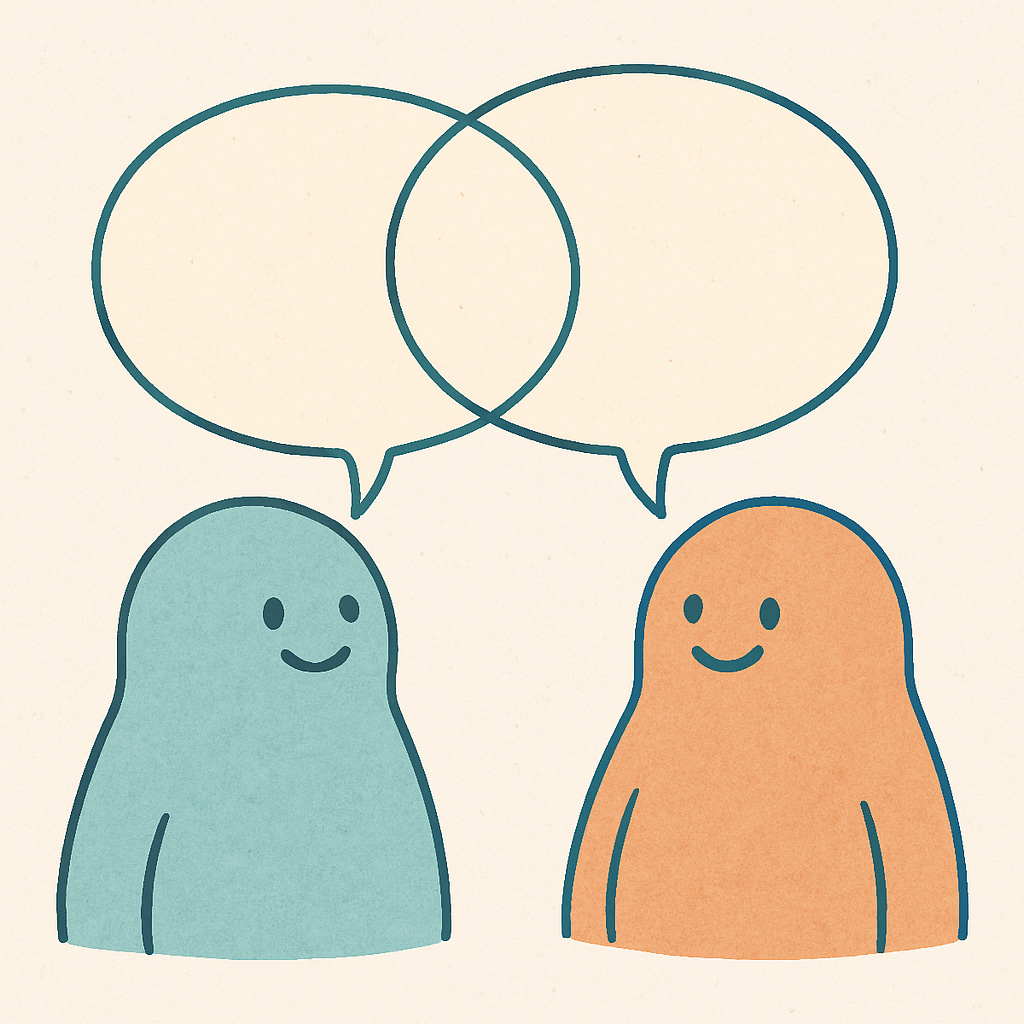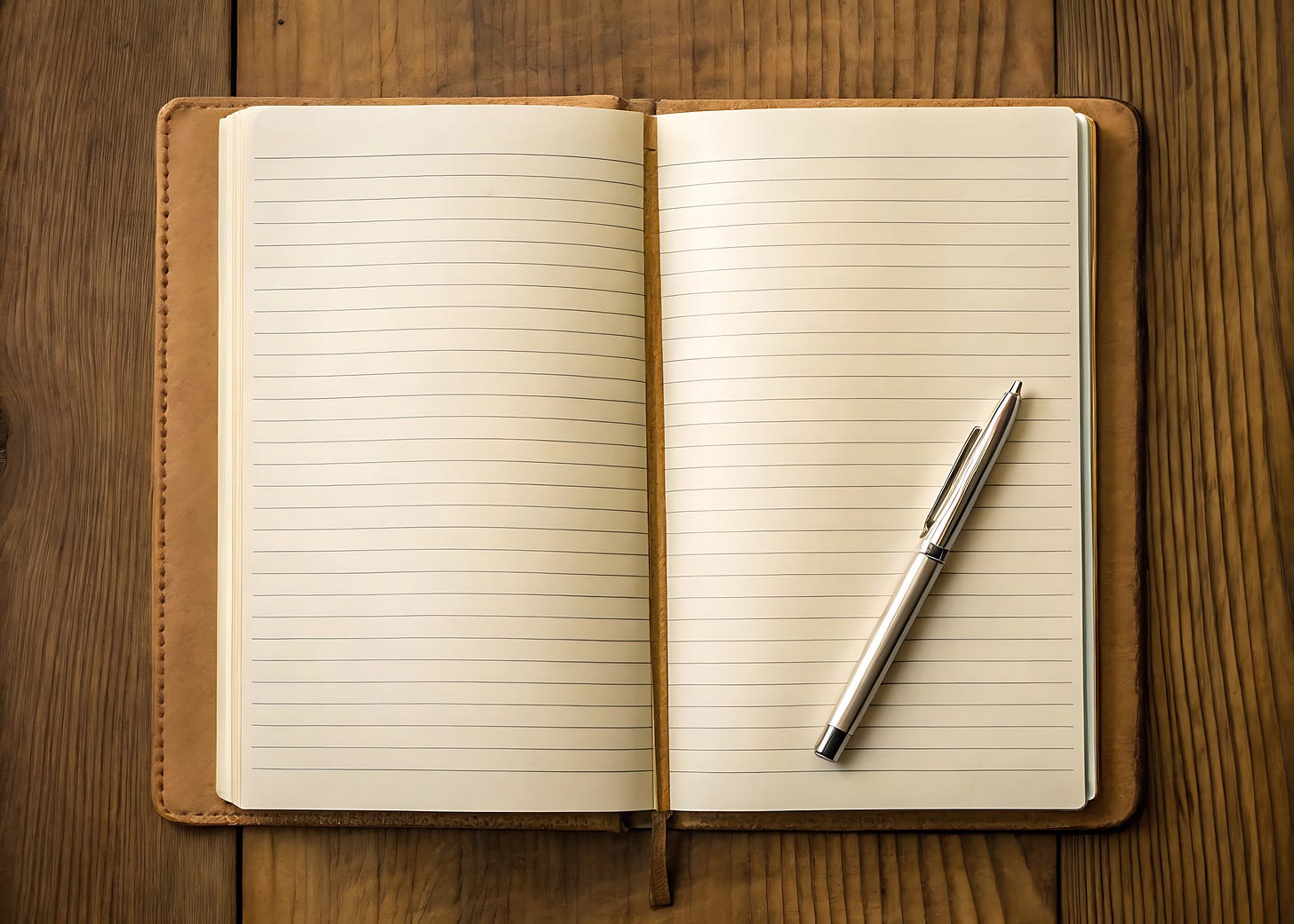The Hidden Curriculum of Success, Part 3: Begin Again
Becoming an Iterative Self, One True Sentence at a Time
In Part I, I explored the hidden curriculum that surrounds high-stakes writing: the pressure to perform, the temptation to polish, and the rare but transformative possibility that writing might instead become a site of meaning-making. I argued that when students resist the impulse to impress, their writing often feels more alive—less like a résumé in prose, more like an honest attempt to make sense of who they are becoming.
In Part II, I turned to why that kind of writing is so rare. Even when students want to be honest, they’ve been trained—by classrooms, rubrics, and institutional expectations—to default to performance. They learn to erase contradictions, stack credentials, and reach for language that sounds impressive rather than true. And when they’re told to “just be authentic,” the genre itself betrays them: authenticity becomes another performance, another trap.
Which brings us here. If performance feels hollow, and authenticity feels impossible, what’s left? What alternative is available when the stories you’re taught to tell no longer feel like your own?
What’s left, I want to suggest, is a different mode of writing altogether. Not performance, not confession, but inquiry. Writing as inquiry doesn’t begin with the question What do they want to hear? or even What’s the most authentic version of me? It begins with a much simpler, riskier question: What am I trying to understand?
Ernest Hemingway once described his own version of this practice. “The writer’s job is to tell the truth,” he said. And when he was stuck, when the work felt impossible, he would tell himself to write “one true sentence.” Just one. If he could find the truest sentence he knew, the rest would follow.
That is what inquiry looks like in its smallest unit. Not a polished narrative, but the courage to write something honest enough to move you forward. This shift reframes the personal statement—and writing more broadly—not as a demonstration of mastery, but as a method of thinking. Inquiry-driven writing doesn’t treat experience as material to be packaged into a tidy story. It treats experience as something to wrestle with, to ask questions of, to test and retest until meaning begins to emerge. It’s less like performing a polished speech and more like following a thread through a dark room, uncertain where it leads but willing to see what takes shape.
But what do we do with meaning once we’ve glimpsed it? If we didn’t want to share it, we wouldn’t have written it down—fixing a thought in language, giving it form, leaving a record that outlasts the moment of its creation. We write not only to understand ourselves, but to invite others into that understanding. Meaning-making is relational. It is our way of saying: Here—this is what I’ve seen about what it means to be. I want you to see it, too. Writing is how we build connection across difference, distance, even centuries. It is how private reflection turns outward, toward empathy—the most human of all capacities.
If Hemingway shows us inquiry in miniature, the classroom showed me what it looks like in practice. When I first began teaching writing, I often opened the semester with a personal narrative assignment. My thinking was simple: students didn’t need to do research or analyze a text—they could reflect on something they already knew—their own lives. It seemed like an accessible way to practice structure, clarity, and voice without the added pressure of external content.
I knew writing about personal experience could be vulnerable, so I worked hard to make the classroom feel safe. We established “four walls” rules. We practiced giving and receiving feedback with empathy and care. We talked about what it meant to listen well, and to write with honesty.
And ironically, I did my job too well.
The stories I received were raw, painful, and deeply personal. Students wrote about deaths, about rapes and molestations, about domestic abuse. I was moved by their trust and honored to read their work—but I wasn’t prepared for what it meant to grade those essays. I will never forget the look on a student’s face when I returned an assignment about witnessing the murder of a classmate, and at the bottom was a bright red C. I explained, of course, that the grade reflected paragraph structure, not lived experience. That it needed one more draft to reach its full potential. But how could it not feel like her trauma was being judged—and found wanting?
That was the moment I began to question what I was really doing. I had asked students to write honestly, but I had invited that honesty into a space that wasn’t kind to it. My job—the reason I’d been hired—was to help under-prepared students write with enough clarity and competency to succeed in their other courses. I had invited them to write their “one true sentence,” but what the rubric required was grammatical proficiency, logical paragraph structure, powerful thesis statements, and compelling evidence. Grading them under those demands meant there was no room for what Helen Sword calls the necessary “air & light & time & space” for honest writing. The mismatch pained me, and I realized I was doing my students a disservice by leading them down a different pathway than what they needed at that moment. Eventually, I stopped assigning personal narratives—not because they lacked value, but because the classroom wasn’t a hospitable place for that kind of rawness.
In that realization, I began to imagine a way of writing that isn’t a demonstration of mastery, but a method of inquiry—a way of thinking on the page. Not a polished product. Not a confession. Something else entirely.
And once I began to see writing this way, I started to see myself differently too. What my students needed wasn’t just better grammar or sharper thesis statements, but permission to practice writing as discovery, even in small increments. That shift revealed something deeper: that writing could help us practice being what I now call the iterative self—a self that is not fixed or finalized, but always in process, always returning to the page to revise, reframe, and begin again. Where performance aims for closure, inquiry honors movement. Where authenticity gets flattened into spectacle, inquiry makes space for contradiction. To write as inquiry is to accept that the self, like the draft, is never finished.
And that, I’ve come to believe, is the deeper promise of writing: it can help us practice being what I call the iterative self. A self that is not fixed or finalized, but always in process. A self that can return to the page, again and again, to revise, reframe, and begin again. Where performance aims for closure, inquiry honors movement. Where authenticity gets flattened into spectacle, inquiry makes space for contradiction. To write as inquiry is to accept that the self, like the draft, is never finished.
But the act of writing also carries a second promise: that our revisions are not meant for us alone. When we put words on a page, we leave a trace—something that can outlast us, that others can pick up and carry forward. Writing is how we share our unfinished selves with one another.
We do not revise in isolation. We revise in conversation—with our past selves, with imagined futures, and with the people who encounter our words along the way. Every draft is a provisional answer to the question of who we are becoming, and every reader is a witness and sometimes a partner to that becoming. We write to discover meaning, yes—but also to extend it, to say: Here is what I have seen. Do you see it too?
Seen this way, writing as inquiry is not only a practice of honesty, but a practice of empathy. It makes space for uncertainty, contradiction, and change—and in doing so, it invites others into the work of meaning-making. The page becomes less a stage for performance than a site of encounter, where the unfinished self reaches out to meet another.
Mikhail Bakhtin, the Russian theorist of language, had a word for this impulse: the utterance. In The Dialogic Imagination, he argued that every utterance—every instance of speech or writing, no matter how small—is inherently dialogic, meaning it exists in dialogue with what has been said before and anticipates a response yet to come. Even the most private diary entry counts as an utterance: it answers an unspoken prompt, addresses a future self, or imagines a listener who may never appear. Language, in Bakhtin’s view, is never solitary. It is always situated, always in conversation, always anticipating a response.
Seen through this lens, writing as inquiry is less about producing a polished product than about taking part in an unfinished conversation. Each draft is a gesture of responsiveness—to the past (“What have I already said?”), to the present (“What do I mean right now?”), and to the future (“How might someone receive this?”). Inquiry means writing not to fix meaning once and for all, but to test it against what came before and what might come next. It is a practice of asking, listening, and revising in public, where meaning is provisional and relational rather than private and settled.
This point of contact is where the idea of the iterative self takes shape. To write as inquiry is to accept that we are never finished—that who we are is always a draft, always subject to revision. To be iterative is to live in a perpetual state of re-writing, where identity and meaning are continually re-formed through experience and expression. The self, like the text, is unfinalizable. And in this recognition lies the freedom of inquiry: to resist closure, to welcome contradiction, and to remain open to the possibility of change.
If Bakhtin helps us see writing as inherently dialogic, Brazilian theorist and philosopher of education Paulo Freire reminds us what that means in the classroom. In Pedagogy of the Oppressed, Freire offered one of the clearest critiques of traditional education. He called it the “banking model,” in which teachers “deposit” information into students as though they were empty accounts. Knowledge, in this view, is a static possession to be stored and repeated, not a living process to be questioned and reimagined. The effect is a culture of compliance. Students learn to reproduce what is expected, to parrot answers back in the preferred idiom of the institution, rather than to discover meaning for themselves.
Freire proposed an alternative: education as dialogue. When teachers and students reflect together on their shared world, knowledge becomes something created between them rather than transferred from one to the other. In that co-creation lies the possibility of freedom—because once you recognize that the world is made and remade through dialogue, you also recognize your power to transform it.
The same contrast applies to writing. The “banking” approach to the personal statement treats the essay as a deposit of credentials: you list achievements, polish them into a narrative arc, and reproduce the institution’s expectations back to itself. It is performance in the purest sense: the shadows on the cave wall mistaken for the thing itself. Writing as inquiry, by contrast, resists this compliance. It treats the essay not as a report on a finished self, but as dialogue—between past and present, between writer and reader, between the story we inherited and the story we are trying to tell. In that sense, the personal statement can become not just a performance of success, but a practice of freedom.
So what does this look like in practice?
As a writer.
Writing as inquiry begins with permission to let the page be a place of discovery. That means resisting the reflex to start with what you already know or what you think others want to hear. Instead, begin with the question that unsettles you. Maybe it’s the contradiction you haven’t resolved, or the turning point you don’t fully understand. Follow it where it leads. In practice, this might look like drafting without worrying if the story is tidy, circling back to see what surprised you, revising not just to smooth sentences but to clarify thought. To write this way is to treat each draft less as a performance and more as a rehearsal—for who you are becoming. The power of the essay, then, lies not in its polish but in its honesty, not in the certainty it projects but in the discovery it makes possible.
As an educator.
The challenge for teachers is to create spaces where this kind of inquiry is not only allowed but expected. That means slowing down the rush toward product, asking questions that don’t have predetermined answers, and grading in ways that value process over outcome. It means recognizing when students are parroting the “right” response back to us, and gently inviting them deeper. In practice, that could mean dedicating time to reflective writing that won’t be graded for grammar, modeling your own uncertainty as a teacher, or treating drafts as opportunities for dialogue rather than compliance. Freire was right: the “banking” model of education teaches students to reproduce what the institution already values. Our task is different. It is to invite students into dialogue, to show them that knowledge is co-created, and to accompany them in the messy work of discovery. When students see writing as a space of inquiry, they begin to imagine education itself not as performance but as freedom.
As a civilian.
This work doesn’t stop in the classroom or on the page. To live as an iterative self is to resist the illusion of a finished story. It is to recognize that identity is always provisional, always open to revision, always co-created in dialogue with others. In practice, this might mean telling your story differently as you gain new experiences, listening closely when others’ perspectives unsettle your assumptions, or finding the courage to say “I was wrong” and mean it. It might mean revisiting the narratives you inherited—about family, success, faith, or failure—and asking how they might be reaccentuated in the light of who you are becoming now. To live iteratively is to keep beginning again, to allow yourself to be revised by others, and to treat connection itself as a practice of freedom.
Of course, some readers will hear all of this and think: That’s lovely—let’s all hold hands and run through the meadows of honest writing—while the kids from Harvard win all the Rhodes Scholarships. I understand the skepticism. After all, I’ve been inside these competitions for over two decades. I’ve seen what the system rewards: the smooth résumé narrative, the tidy arc from challenge to triumph, the voice that sounds practiced without ever admitting it’s been rehearsed. I’ve watched committees choose the candidate who knows how to hit every expected note over the one whose essay rang with genuine searching. And I’ve watched brilliant, honest students walk away empty-handed because they refused to package themselves too neatly. (Or because they tried and lacked the skill.)
That pressure is real, and I would never pretend otherwise. Students are not wrong to sense that performance often works. It does. A well-polished story, shaped to fit the institutional mold, can and does win fellowships. Which is why it takes an act of trust—sometimes even of defiance—for a student to write differently. To believe that inquiry might be more powerful than performance requires undoing years of training. It requires deprogramming the quiet lesson that compliance is safer than honesty.
And even when students begin to believe, the practice itself is slow. Nobody finds their authentic voice in a single draft. We are all, as Althusser would remind us, products of the ideological state apparatus—trained to perform certain roles, rewarded for compliance, fluent in the institution’s preferred idioms. Learning to write otherwise is not a quick revelation; it is the long work of unlearning, and then beginning again. The most compelling essays I’ve ever read—the ones that committee members couldn’t stop talking about—were never the ones that performed polish for its own sake. They were the ones that sounded alive, provisional, in motion. They were the essays that risked honesty and in doing so made the reader lean in. It can take months, sometimes years, for students to trust the process enough to risk that kind of honesty on the page.
Earlier I quoted Hemingway’s reminder that “the writer’s job is to tell the truth.” That line has shaped my own process as a teacher. Helping students re-educate themselves as writers is not a matter of sudden revelation—it is the slow work of beginning again, one true sentence at a time. Years of performative training can’t be undone in a single draft, and experience has shown that student writers will cling to clichés as if their lives depended on them (you see what I did there?). But in the smallest possible units—one word, one sentence, one paragraph—they can begin to hear what their own voice sounds like when it is honest, not performed.
Which is why I return to Hemingway’s fuller description in A Moveable Feast, where he explained how he kept himself going when the writing felt impossible:
“I would stand and look out over the roofs of Paris and think, ‘Do not worry. You have always written before and you will write now. All you have to do is write one true sentence. Write the truest sentence that you know.’ So finally I would write one true sentence, and then go on from there. It was easy then because there was always one true sentence that I knew or had seen or had heard someone say.”
That is the heart of inquiry: not the finished performance, not the perfect narrative arc, but the small act of honesty that makes the next sentence possible. Over time, those sentences accumulate into something more than performance. They accumulate into a self that is iterative, dialogic, and free.
If there is a hidden curriculum of success, it is not the polish of credentials or the performance of certainty. It is the willingness to keep writing—and living—as though one true sentence were enough to begin.
This three-part series has used the personal statement as its case study, but the questions we’ve explored are larger than any one genre. What does it mean to write honestly in a culture that rewards performance? How do we resist the pressure to reproduce the scripts we’ve been handed, and instead author our own?
Those questions reach beyond fellowship essays. They belong to anyone trying to tell the truth about who they are, anyone navigating the gap between performance and reality, anyone searching for a way forward in a world crowded with expectations. That work—the profoundly human work of revision—is what The Revisionist is about.
And it leads to the next question: how do we decide who is worthy? The personal statement is only one site where that question gets rehearsed. Behind every prompt, rubric, and committee conversation lies a deeper cultural script—the belief that merit can be measured, performed, and rewarded. Merit is the official curriculum, shouted from every admissions brochure and résumé guide. But like all rhetoric, it has a history, a politics, and a cost. That’s where we’ll turn next: the rhetoric of merit—where it came from, how it works, and what it makes us believe about ourselves and one another.






